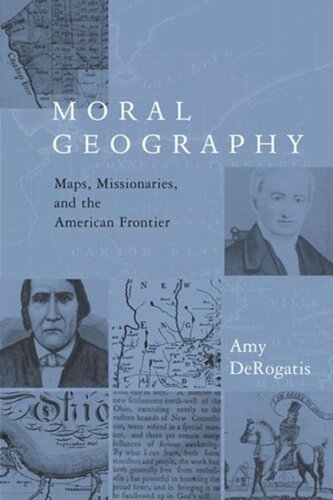

Most ebook files are in PDF format, so you can easily read them using various software such as Foxit Reader or directly on the Google Chrome browser.
Some ebook files are released by publishers in other formats such as .awz, .mobi, .epub, .fb2, etc. You may need to install specific software to read these formats on mobile/PC, such as Calibre.
Please read the tutorial at this link: https://ebookbell.com/faq
We offer FREE conversion to the popular formats you request; however, this may take some time. Therefore, right after payment, please email us, and we will try to provide the service as quickly as possible.
For some exceptional file formats or broken links (if any), please refrain from opening any disputes. Instead, email us first, and we will try to assist within a maximum of 6 hours.
EbookBell Team

4.1
70 reviewsMoral Geography traces the development of a moral basis for American expansionism, as Protestant missionaries, using biblical language and metaphors, imaginatively conjoined the cultivation of souls with the cultivation of land and made space sacred. While the political implications of the mapping of American expansion have been much studied, this is the first major study of the close and complex relationship between mapping and missionizing on the American frontier.
Moral Geography traces the development of a moral basis for American expansionism, as Protestant missionaries, using biblical language and metaphors, imaginatively conjoined the cultivation of souls with the cultivation of land and made space sacred. While the political implications of the mapping of American expansion have been much studied, this is the first major study of the close and complex relationship between mapping and missionizing on the American frontier. Moral Geography provides a fresh approach to understanding nineteenth-century Protestant home missions in Ohio's Western Reserve. Through the use of maps, letters, religious tracts, travel narratives, and geographical texts, Amy DeRogatis recovers the struggles of settlers, land surveyors, missionaries, and geographers as they sought to reconcile their hopes and expectations for a Promised Land with the realities of life on the early American frontier.